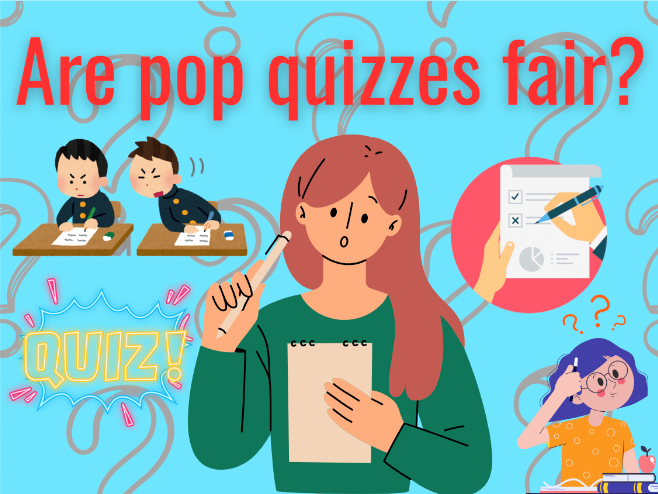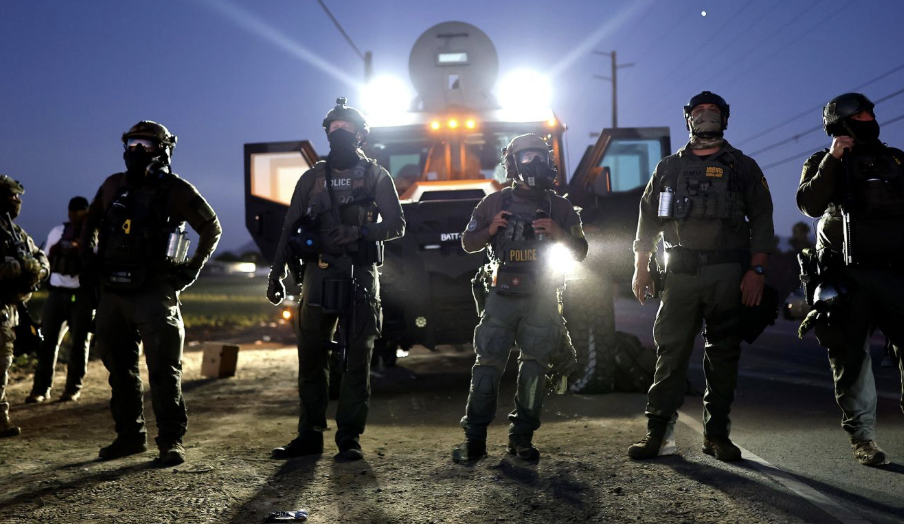The idea of a pop quiz, or any test for that matter, is to test student’s knowledge. With pop quizzes specifically, students do not have time to prepare—the test appears with a pop. Pop quizzes are often used to see what students know off the top of their heads without studying; essentially, to see if they have been paying attention or completed assignments. On rare occasions, these quizzes are given with a clear, fair intent. But, for the most part, pop quizzes are the unfair weapon of grumpy teachers who want to punish their students.
There is only one part of school that can be a surprise to students: pop quizzes. Tests, homework, projects—students can make a schedule for themselves and plan accordingly. Pop quizzes take a wrecking ball to the system as they are randomly thrust upon students when they least expect it, going completely against the time budgeting practices that so many teachers encourage for students’ best practices. This is especially egregious in high school when students are supposed to start taking responsibility for themselves. Pop quizzes fly directly in the face of this, showing students that their teachers do not respect them. Whether this is the real reason why the teacher is actually giving it, pop quizzes tell students their teachers have no trust in them since they, by their very definition, are intended to test what students know, without time to study.
Even if one ignores the mindset behind pop quizzes, they are still a horrible thing to put a student through. By being suddenly thrown into a testing environment, teachers can not only harm their students’ mental health but also show no regard for their state of mind. With so many young people suffering from anxiety, this is an especially pressing issue. It is the teacher’s choice whether to give the same exam as a pop quiz or a scheduled test when students are afforded advance notice. It is fair to say that both kinds of tests can cause students stress, but teachers simply cannot do away with straightforward exams. Some students even prefer tests to projects or other forms of assessments, feeling they better show their knowledge of a subject. Pop quizzes, on the other hand, would not be missed by any student. There simply is no reason why a student should be required to take a test for which they had no time to properly prepare.
There, of course, is the argument that pop quizzes should be used to encourage students to pay attention in class. But, so long as the student knows the material by the due date, for example, an end-of-unit test or final, timing should not matter. In fact, some students may not click with the teaching style of the class, needing to study to truly understand the material. Pop quizzes only serve to punish these students and all the others who genuinely do pay attention in class. One of the purposes of high school is to prepare students for the autonomy of college. Pop quizzes are a misguided way of holding students accountable without notice.
Some teachers try to use pop quizzes sparingly, only when absolutely necessary. If a class is being persistently rowdy and unresponsive, for example. But even this does not take into account the few students in the class who were simply sitting quietly and genuinely listening on the sidelines. There are always casualties with pop quizzes. There is no benefit to pop quizzes. As such, teachers should not give them. They are a cruel form of class-wide punishment that actually impacts grades. In this highly competitive world in which one percentage point on a final grade could mean the difference between acceptance and rejection from colleges, students should not have to endure the ridiculous practice of pop quizzes, no matter their teacher’s rationale.















